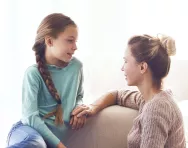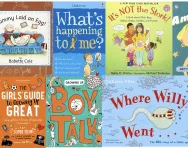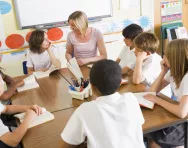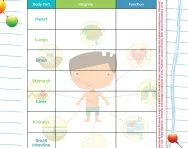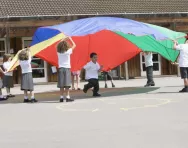TheSchoolRun.com closure date
As we informed you a few months ago, TheSchoolRun has had to make the difficult decision to close due to financial pressures and the company has now ceased trading. We had hoped to keep our content available through a partnership with another educational provider, but this provider has since withdrawn from the agreement.
As a result, we now have to permanently close TheSchoolRun.com. However, to give subscribers time to download any content they’d like to keep, we will keep the website open until 31st July 2025. After this date, the site will be taken down and there will be no further access to any resources. We strongly encourage you to download and save any resources you think you may want to use in the future.
In particular, we suggest downloading:
- Learning packs
- All the worksheets from the 11+ programme, if you are following this with your child
- Complete Learning Journey programmes (the packs below include all 40 worksheets for each programme)
You should already have received 16 primary school eBooks (worth £108.84) to download and keep. If you haven’t received these, please contact us at [email protected] before 31st July 2025, and we will send them to you.
We are very sorry that there is no way to continue offering access to resources and sincerely apologise for the inconvenience caused.
Sex and relationships: how to talk to your primary-school child

How to talk to your child about sex and relationships
The thought of talking to your child about sex might make you cringe, but leaving it entirely up to school is not an option – especially as they’ll probably start showing an interest before they even sets foot in a classroom. ‘Children are naturally curious, so it’s important to answer their questions openly, in child-friendly language, as soon as they begin to talk,’ says Lucy Emmerson, co-ordinator of the Sex Education Forum.
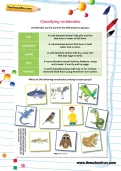

Download fantastic science resources today!
- Experiments And Science Fun pack
- Science Learning Programme for each school year
- All the instructions, questions and information you need
The good news is that you don’t necessarily have to have the Big Talk with your child. ‘It’s normal to feel embarrassed, but you don’t have to prepare a formal sex talk,’ says Paul Casey, training manager at FPA, the sexual health charity. ‘Let it be a natural process from an early age, building on your child’s questions or observations; the more you talk, the easier it will become.’
What should you talk about and when?
Although there’s no right or wrong age to tackle specific sex and relationships topics, it’s important to be led by your child. ‘Most parents will also want to pre-empt what children are learning at school, so they’re not hearing things for the first time in the classroom,’ adds Lucy.
Currently, sex education isn't compulsory in primary schools, although Department for Education guidance recommends that children are taught about sex and relationships in Year 6. In addition, the science curriculum requires that children learn about reproduction in animals and humans in Year 2 (but not how it happens), and puberty in Year 5. In March 2017, the Government announced that sex and relationships education (SRE) will be compulsory in all primary and secondary schools, including academies and free schools from 2020. The emphasis in primary schools will be on teaching children about safe and healthy relationships. They will also be taught about sex at an age-appropriate time, although parents will have the right to withdraw their children from these lessons.
The Sex Education Forum has a comprehensive list of typical questions and topics for discussion, broken down by age.
‘Children aged three to four are aware and curious about the differences between the sexes, and are happy with short, simple, truthful answers,’ says Paul. For example:
Q: Where do babies come from?
A: Mummy and Daddy have a special cuddle.
Q: How do babies get into a mummy’s tummy?
A: A seed meets an egg and grows into a baby.
Q: Can men have babies?
A: Babies can only grow in a special place inside mummies’ tummies.
Children aged five to eight are curious about their own bodies and other people’s, pregnancy and childbirth. ‘They need to know about puberty and body changes, so they’re prepared before it happens to them,’ says Paul. By this age they should know about periods and wet dreams, the proper names for genitals and how a baby is made. Common questions include:
- Why are some parents married, and others aren’t?
- Can men marry men, and women marry women?
- Why is my body changing?
- Why do some children grow faster than others?
- What are some of the bad ways that people can behave towards each other?
Children aged nine to 11 are likely to begin showing signs of puberty. ‘They become conscious of the differences between their bodies and their friends’, and may be anxious about what is normal,’ says Paul. ‘It is best to talk to children about puberty before it happens, so they feel prepared; for most children around eight or nine will be an appropriate age.’ Typical questions include:
- What do the words ‘lesbian’ and ‘gay’ mean?
- What is puberty? Does everyone go through it, and when?
- Is my body normal?
- What is sex?
- How do sperm reach the egg to make a baby?
Entering the teenage years, children will be interested in hormones, the menstrual cycle, wet dreams, erections, the difference between sexual attraction and love, contraception and pregnancy choices. They might want to know:
- What if I’m attracted to someone of the same gender?
- Do I have to have sex with someone to show I love them?
- What is an orgasm?
- Who should be responsible for contraception in a relationship?
Sex terminology
The names you use for body parts will depend on what you and your family feel comfortable with, but it’s important that your child also knows the biologically correct terminology. ‘This allows children to speak accurately about their bodies, which is important not just in sex education, but also in child protection, as it means they can tell an adult if someone touches them in a way that worries them,’ says Lucy.
Sex education in primary schools
Primary schools can choose whether or not to provide sex and relationships education, but since September 2014, maintained schools teach the biology of reproduction and puberty as part of National Curriculum science. This includes:
- The processes of growth and reproduction in animals (in Year 1)
- Different types of reproduction in plants and animals, the stages of human growth and development, and puberty (in Year 5).
All maintained schools must have a written sex education policy and make it available to parents. ‘Schools should also communicate clearly about what will be taught, for example by explaining who will deliver the sex education programme, what will be covered, and when,’ says Lucy. ‘It’s good practice for schools to invite parents to look at any material that will be used; some even have a collection of resources like DVDs and books that families can borrow to use at home.’
Good sex education resources for sharing with your child
The Sex Education Forum has resources for parents, including a guide to the dos and don’ts of talking to children about sex, and what you can expect from your child’s school.
School learning content producer ClickView has a free video series for teachers and parents, Next Stop, Puberty!, which addresses the biological, social and emotional aspects of sex education for KS2 and KS3 and includes diversity in ethnicity, body shape and gender.
The FPA’s resources section includes advice sheets for talking to your child, broken down into age groups. Other useful material for parents and children includes:
- Speakeasy: Talking to your child about growing up (£8.49, FPA): an in-depth guide to answering your child’s questions.
- Mummy Laid an Egg (£1.50) and Hair in Funny Places (£5.99) by Babette Cole: picture books introducing sex education basics for children aged around five to seven.
- Girls Only! All about periods and growing-up stuff by Vic Parker (£4.99): a down-to-earth book aimed at primary school girls aged nine to 11.
- What's Happening to Me (Boys) (£7.99): a reader-friendly guide to growing up for boys.
For more books about sex and puberty for children, see our parents' guide.
